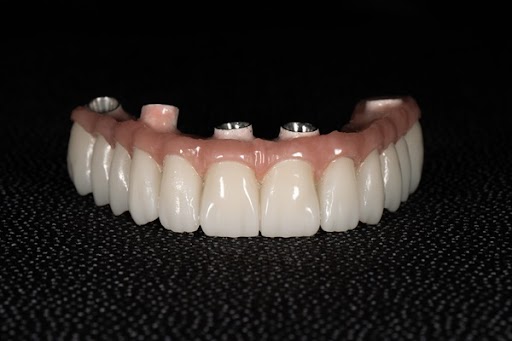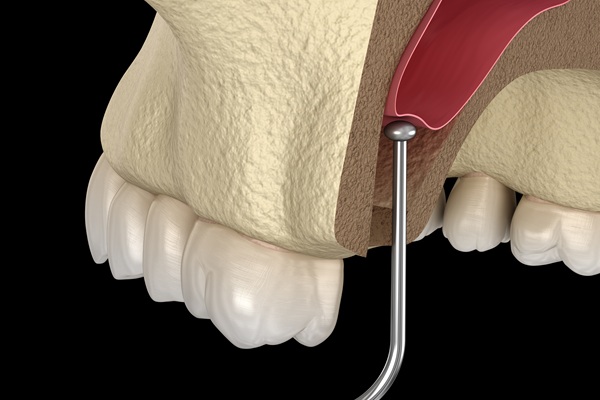When All-On-4 Implants Are the Best Option for Smile Restoration

All-on-4 implants offer stable, full-arch solutions when teeth are failing or missing. This approach replaces an entire row of teeth with a denture or fixed bridge supported by four dental implants. It restores chewing strength, clear speech, and everyday confidence while keeping care simple. Here is when this option rises to the top and what to expect along the way.
When it makes sense to choose all-on-4 implants
All-on-4 implants often make sense when many teeth in the upper or lower arch are damaged, loose, or missing. They also help people who struggle with dentures that slip, rub, or limit food choices. Because implants tilt in precise angles to use available bone, some patients who do not qualify for traditional full-arch implants may still be candidates for this method. The result is strong, without the need for removable plates or messy adhesives.
How the all-on-4 implants approach works
During treatment planning, the oral surgeon reviews the patient's health history, takes 3D scans, and maps the exact implant positions. On the surgical day, four implants are placed in the jaw to anchor a custom full-arch bridge. In many cases, a temporary set of fixed teeth attaches the same day, so the smile looks complete while healing begins. Over the next month, bone bonds to the implants, and a final, durable bridge or denture replaces the temporary.
All-on-4 implants' benefits that stand out
The advantages extend well beyond a new look. All-on-4 implants provide day-to-day function and comfort:
- Reliable chewing and speech: Enjoy a broader food list and clearer words without denture movement
- Fixed stability: No slipping, soaking, or adhesive to make the restoration stay in place
- Streamlines care: Brush, floss with aids, and use recommended rinses like natural teeth
- Bone support: Implants stimulate the jaw, which helps limit future bone loss
All-on-4 implants candidacy and planning
A full evaluation by an oral surgeon confirms whether this path is right for you. Ideal candidates are committed to maintaining strong oral hygiene, regular checkups, and healthy habits that support optimal healing. They will also be free from tobacco and nicotine use, as these substances are known to inhibit healing and increase healing. Medical conditions, medications, and bone quality guide the plan, and the team sets clear expectations for diet and activity during recovery. With careful design and precise placement, all-on-4 implants deliver both strength and a natural smile that fits the face.
Life after all-on-4 implants treatment
Daily routines feel straightforward. Clean around the bridge as directed, use floss threaders or interdental brushes, and keep professional maintenance visits on schedule. If night grinding is a concern, a protective nightguard may help once healing allows. Balanced nutrition, hydration, and steady sleep further support long-term comfort and implant health.
Determine your candidacy
For many full-arch cases, all-on-4 implants provide stability, function, and an attractive smile in a single, coordinated plan. Thoughtful planning and healthy habits help results last, while fixed teeth make eating and speaking feel natural again. Are you interested in learning if you are an ideal candidate for all-on-4 implants? Contact our Brighton office and schedule an appointment today.
Request an appointment here: https://brighton.drjstearns.com or call Platte Valley Oral Surgery at (303) 997-0223 for an appointment in our Brighton office.
Check out what others are saying about our dental services on Yelp: All-on-4 Dental Implants in Brighton, CO.
Recent Posts
A sinus lift procedure goes by many other names, including sinus elevation, sinus augmentation, and sinus graft. It can be an important step in the process of having a dental implant placed in the upper jaw to replace a missing tooth. The procedure involves raising the floor of one of the maxillary sinuses and filling…
Facial trauma treatment differs based on the severity and location of the damage. Continue reading to learn how an oral surgeon addresses facial trauma. It can cause other medical issues, so it is important to seek treatment promptly. An oral surgeon is a face trauma specialist who is trained in maxillofacial surgery and treatment. They…
Oral bone grafting procedures can help restore mouth functionality, health, and appearance. These surgical procedures vary in type and extent. Continue reading to learn more about dental bone grafts, the surgical grafting process, and why someone might need oral bone grafts.Surgeons perform bone grafts throughout the body. Oral bone grafting occurs in the mouth, usually…
An oral pathology must receive immediate treatment. This can prevent more complications later on. Your oral surgeon can help correct any dental problem. Here are the details about each common oral pathology and its corresponding treatment.This oral pathology results from a bacterial infection because of plaque buildup. Symptoms of this condition include gum bleeding and…


